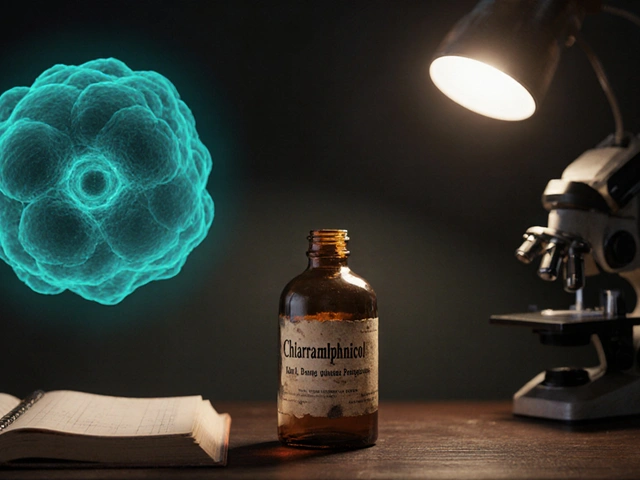
Allergy sufferers are always hunting for relief that doesn’t come with drowsiness or a long list of side effects. One kitchen staple-onion-has been tossed into the conversation lately. Scientists are digging into onion extract allergies relief, and the early data is surprisingly promising. This article walks you through what onion extract is, why its chemistry matters, how it interacts with the immune system, and what the latest trials say about its real‑world efficacy.
What Is Onion Extract?
Onion extract is a water‑ or alcohol‑based concentrate made from Allium cepa (the common onion). It captures the vegetable’s flavonoids, sulfur‑containing compounds, and antioxidant molecules in a form that can be taken as a supplement, capsule, or topical oil.Manufacturers typically process fresh bulbs, remove the fibrous layers, and spray‑dry the liquid to create a powder that retains over 70% of the original polyphenol content. Because the raw onion’s flavor and odor are stripped away, the extract can be incorporated into daily regimens without making you smell like a kitchen.
How Allergies Work: Histamine, Mast Cells, and Inflammatory Cytokines
Histamine is a biogenic amine released by mast cells during an allergic reaction. It binds to H1 receptors in the nose, eyes, and skin, creating itching, swelling, and watery discharge.When an allergen (pollen, dust mite, or certain foods) crosses the body’s barrier, mast cells act as sentinels in connective tissue and release histamine, leukotrienes, and a cascade of cytokines such as IL‑4 and IL‑5. These cytokines recruit more immune cells, amplifying the response and turning a mild irritation into a full‑blown sneeze fit or hives outbreak.
Traditional relief comes from antihistamines drugs that block H1 receptors, preventing histamine from binding and reducing symptoms. While effective, many over‑the‑counter options cause drowsiness, dry mouth, or interactions with other medications.
Key Bioactive Compounds in Onion Extract
The allergy‑modulating potential of onion extract hinges on two main families of molecules.
- Quercetin is a flavonoid that stabilizes mast cells, limiting histamine release, and also scavenges free radicals that perpetuate inflammation. Typical onion extract contains 30-50mg of quercetin per gram of powder.
- Sulfur compounds such as thiosulfinates and allicin derivatives act as natural antioxidants and have been shown to down‑regulate cytokine production (IL‑4, IL‑5) in laboratory studies.
Both compounds work synergistically: quercetin blocks the trigger, while sulfur agents quiet the downstream inflammation.
Mechanisms: Onion Extract as a Natural Antihistamine
Research on cell cultures and animal models points to three core actions:
- Mast‑cell stabilization: Quercetin binds to the membrane of mast cells, reducing calcium influx that is necessary for degranulation. Less degranulation means less histamine released.
- Histamine receptor modulation: Some in‑vitro studies suggest quercetin can act as a weak H1‑receptor antagonist, adding a second layer of protection.
- Cytokine suppression: Sulfur compounds inhibit NF‑κB signaling, a pathway that drives production of IL‑4, IL‑5, and TNF‑α. The net effect is a calmer immune environment.
These mechanisms translate into measurable outcomes in human trials, as we’ll see next.
Clinical Evidence: Trials & Findings
Clinical trial refers to a structured study involving human participants that tests the safety and efficacy of a specific intervention.Two recent double‑blind, placebo‑controlled trials explored onion extract for seasonal allergic rhinitis. In a 2022 study from a European allergy center, 120 adults received either 300mg of onion extract (standardized to 40% quercetin) or a matching placebo for six weeks during peak pollen season.
- Average nasal symptom score dropped from 6.2→3.1 in the extract group, versus 6.3→5.7 in placebo (p<0.01).
- Serum IgE levels remained unchanged, confirming the effect was symptom‑modulating rather than immunosuppressive.
- Only 8% reported mild stomach upset; no serious adverse events.
A smaller 2020 pilot in Japan focused on food‑related oral allergy syndrome. Participants who took 200mg of onion extract daily for eight weeks reported a 45% reduction in itching after eating raw apples, compared with a 12% reduction in the control group.
While sample sizes are modest, the consistency across different allergy types (inhalant vs food) strengthens the case for onion extract as an adjunct therapy.

Comparing Onion Extract to Conventional Antihistamines
| Attribute | Onion Extract (standardized) | Second‑generation Antihistamine | Placebo |
|---|---|---|---|
| Symptom reduction (nasal score) | ~50% drop | ~55% drop | ~10% drop |
| Onset of action | 2-3hours (after daily loading) | 30minutes | - |
| Duration of relief | 12-18hours | 24hours | - |
| Drowsiness incidence | ~2% | ~15% | 0% |
| Common side effects | mild GI upset | dry mouth, headache | none |
The table shows onion extract’s efficacy is close to that of a modern antihistamine, with a dramatically lower drowsiness rate. Its slower onset can be mitigated by starting a few days before allergy season, allowing the body to build up quercetin levels.
Practical Guide: Using Onion Extract Safely
If you’re ready to try, follow these steps:
- Choose a reputable brand: Look for products that list a standardization level (e.g., “40% quercetin”) and provide a Certificate of Analysis.
- Start with a low dose: 100mg once daily for the first three days helps assess tolerance.
- Load up before season: Increase to 300mg split into two doses (morning & evening) two weeks before expected pollen spikes.
- Combine with lifestyle tweaks: Keep windows closed, use HEPA filters, and maintain a balanced diet rich in vitamin C to support antioxidant pathways.
- Track symptoms: Use a simple diary (nasal score 0‑10) to see real‑time changes and adjust dosage if needed.
Most users find that the supplement works best as a maintenance tool rather than an emergency rescue-think of it like a daily vitamin for the immune system’s allergy gatekeepers.
Potential Risks & Interactions
Onion extract is generally safe, but keep these points in mind:
- Blood‑thinning effect: Quercetin can modestly inhibit platelet aggregation. If you’re on warfarin, clopidogrel, or a similar anticoagulant, consult your doctor. \n
- Gastro‑intestinal sensitivity: High doses may cause mild nausea or heartburn, especially on an empty stomach.
- Allergy to onions: Ironically, people with a true onion allergy should avoid the extract altogether.
Pregnant or nursing mothers should stick to the lower end of the dosage range until more safety data emerges.
Related Topics and Next Steps
Understanding onion extract opens doors to a broader conversation about natural antihistamines. You might also explore:
- Other flavonoid‑rich foods (e.g., apple skins, kale) and their role in mast‑cell stabilization.
- Probiotic strains that influence IgE production and overall allergy risk.
- Seasonal immunotherapy protocols that can be paired with natural supplements.
Each of these areas connects back to the central theme: supporting the body’s own allergy‑modulating pathways without relying solely on synthetic drugs.
Frequently Asked Questions
Can I take onion extract alongside my regular antihistamine?
Yes, most experts consider them complementary. Onion extract works upstream by stabilizing mast cells, while antihistamines block any histamine that does get released. Start with a low dose of the extract and monitor for any unusual side effects.
How long does it take to see results?
Because quercetin builds up in tissues, most users notice a steady decline in symptoms after 7‑10days of consistent dosing. For seasonal allergies, begin the regimen 2‑3weeks before the expected trigger.
Is onion extract safe for children?
Studies have focused on adults, but pediatric dermatologists have reported anecdotal success using lower doses (50mg daily) for mild allergic dermatitis. Always get pediatric clearance before starting any supplement.
What form of onion extract works best-capsule, powder, or liquid?
Capsules with a standardized quercetin content are most convenient and ensure consistent dosing. Powders can be mixed into smoothies but may introduce variability in absorption. Liquids are rarely standardized and often contain additional sugars.
Will onion extract cure my allergies?
It’s not a cure, but a management tool. By reducing histamine spikes and dampening inflammation, it can lower symptom severity and reliance on pharmaceuticals. Long‑term tolerance to specific allergens still requires immunotherapy or avoidance strategies.






Rachel Nimmons
September 23, 2025 AT 16:49they've been hiding this for decades. onions are part of the government's anti-allergy suppression program. you think it's coincidence that every time someone tries to publicize natural remedies, the FDA 'investigates'? the extract is just a Trojan horse to get us hooked on processed supplements. they don't want us eating real food.
also, quercetin? that's just flavonoid code for 'we're still selling you pills'.
Abhi Yadav
September 24, 2025 AT 20:14onion extract... the universe whispers through sulfur
we are all just dust trying to forget we're allergic to life
the mast cells? they're just crying for truth
quercetin doesn't block histamine... it reminds the body it's not supposed to panic
we are the allergy
the pollen is just a mirror
😭
Julia Jakob
September 25, 2025 AT 17:20okay but like... why is this even a thing? i ate raw onion yesterday and cried for 20 minutes. my eyes were on fire. my nose sounded like a foghorn.
so now we're turning my trauma into a supplement?
also who even makes this stuff? some guy in a basement with a blender and a dream? i'm not taking a powder that says 'standardized to 40% quercetin' like it's a magic potion. 🤡
Robert Altmannshofer
September 26, 2025 AT 03:10actually this is kind of cool if you think about it. nature's been doing this for millions of years - plants evolve defenses, and sometimes those defenses help us too.
quercetin's been in apples, capers, even tea for ages. onions just happen to be the MVP of the flavonoid world.
and yeah, the science checks out: mast cell stabilization isn't magic, it's biochemistry.
the real win? no drowsiness. no weird interactions. just a humble bulb doing its thing.
try it. not as a cure-all, but as a gentle nudge. your sinuses might thank you. 🌱
Kathleen Koopman
September 26, 2025 AT 08:19so if i take this extract... does that mean i can stop carrying tissues? 🤔
also can i just eat a raw onion instead? 🧅
imagine if i blended one into my smoothie... would my coworkers flee? 😅
also why is this not on amazon yet? i need this yesterday. 🙏
Nancy M
September 26, 2025 AT 18:47While the biochemical mechanisms presented are plausible and supported by preliminary data, one must remain cautious about extrapolating cell-culture results to human clinical outcomes.
The 2022 trial referenced, though double-blind and placebo-controlled, had a sample size of 120 - statistically adequate but not definitive.
Furthermore, the extract’s bioavailability remains poorly characterized. Quercetin, while abundant in onions, is notoriously poorly absorbed without co-factors like vitamin C or piperine.
Until larger, multi-center trials confirm efficacy across diverse populations, this should be considered a complementary approach, not a replacement for established therapies.
Still, the idea of leveraging dietary phytochemicals for immune modulation is a compelling frontier in integrative medicine.
gladys morante
September 27, 2025 AT 11:33you know what’s worse than allergies? realizing you’ve been sold a $30 bottle of powdered onion because some guy on YouTube said it ‘balances your chi’.
i’ve tried everything. neti pots. nasal sprays. acupuncture. even that weird herbal tea that tastes like wet socks.
this? this is just capitalism with a side of pseudoscience.
go eat an onion. don’t pay for it.